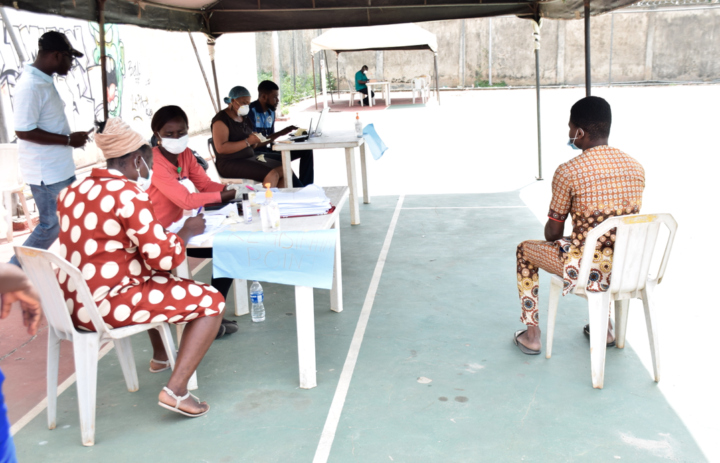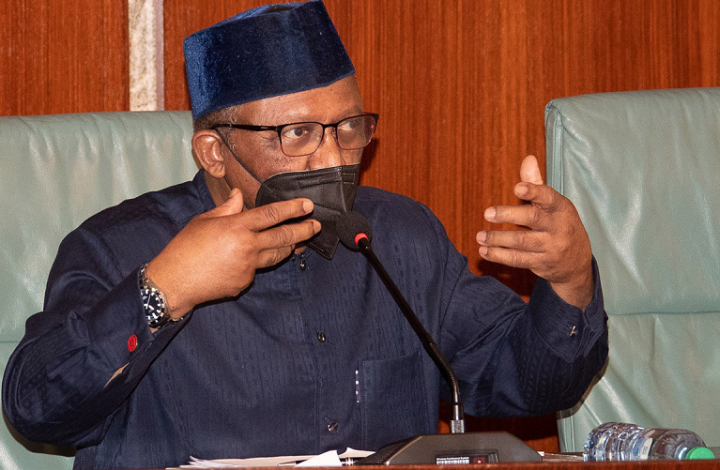The argument over the legality of private citizens arresting crime suspects has become a recurring debate, given that it is one of the primary duties of law enforcement agencies.
The debate resurfaced when Babajide Sanwo-Olu, governor of Lagos state, arrested three persons for allegedly attempting to rob a motorist.
The suspects were said to be in the process of dispossessing the motorist of his vehicle when the convoy of the governor arrived at the scene.
Some days later, the suspects were arraigned at the state magistrate’s court, Ebute-Metta on three counts bordering on conspiracy, breach of public peace and possession of weapons — but they pleaded not guilty.
Advertisement
The action of the governor, who is not saddled with the responsibility of arresting suspected criminals, elicited reactions, especially on social media.
Some Nigerians faulted the move, interpreting it as a form of publicity without a legal basis.
But it was not the first time a governor will arrest suspected offenders. In January 2019, Akinwunmi Ambode, the former governor of Lagos, arrested some drivers who were caught violating a traffic law.
Advertisement
Similarly, in May 2021, residents of an estate in Lagos arrested two men who allegedly impersonated officials of the Economic and Financial Crimes Commission (EFCC) to extort unsuspecting residents.
The suspects were later handed over to officials of the EFCC.
But are persons who are not members of law enforcement agencies legally backed to carry out the arrest of suspected criminals?
THE POSITION OF THE LAW
Advertisement
The Nigeria Police Act of 2020 and the Administration of the Criminal Justice Act (ACJA) 2015 gave the leeway for a private citizen to arrest someone who commits an offence recognised by the law or is suspected of having committed an offence.
Section 39 of the Nigeria Police Act of 2020 states that “a private person may arrest a suspect in Nigeria who in his presence commits an offence or whom he reasonably suspects of having committed an offence for which the police is entitled to arrest without a warrant”.
This implies that citizens are allowed by the law to arrest suspects of a crime without the presence of the police.
After the arrest has been made by the private citizen, he or she is expected to hand over the suspect to a police officer or take the suspect to the nearest police station.
Advertisement
Section 40 (1) of the Nigeria Police Act 2020 states that “a private person who arrest a suspect shall immediately hand over the suspect so arrested to a police officer or in the absence of a police officer, shall take the suspect to the nearest police station and the police officer shall make a note of the name, address and other particulars of the private person making the arrest”.
As seen in this provision, the private citizen who made the arrest is not expected to take the law into his or her hands by way of jungle justice but hand over the suspect to the police.
Advertisement
After the suspect has been handed over to the police, the police will then investigate to determine if the suspect has committed an offence.
Section 40 (3) states that: “Where there is reason to believe that the suspect has committed an offence and he refuses, on the demand of a police officer to give his name or address, or give a name or address which the police reasonably believes to be false, the provisions of section 61 of this act shall apply.”
Advertisement
Section 61 of the act basically gives the police the power to make an arrest.
This report is published in partnership with Report for the World, a global service programme that supports local public interest journalism.
Advertisement






